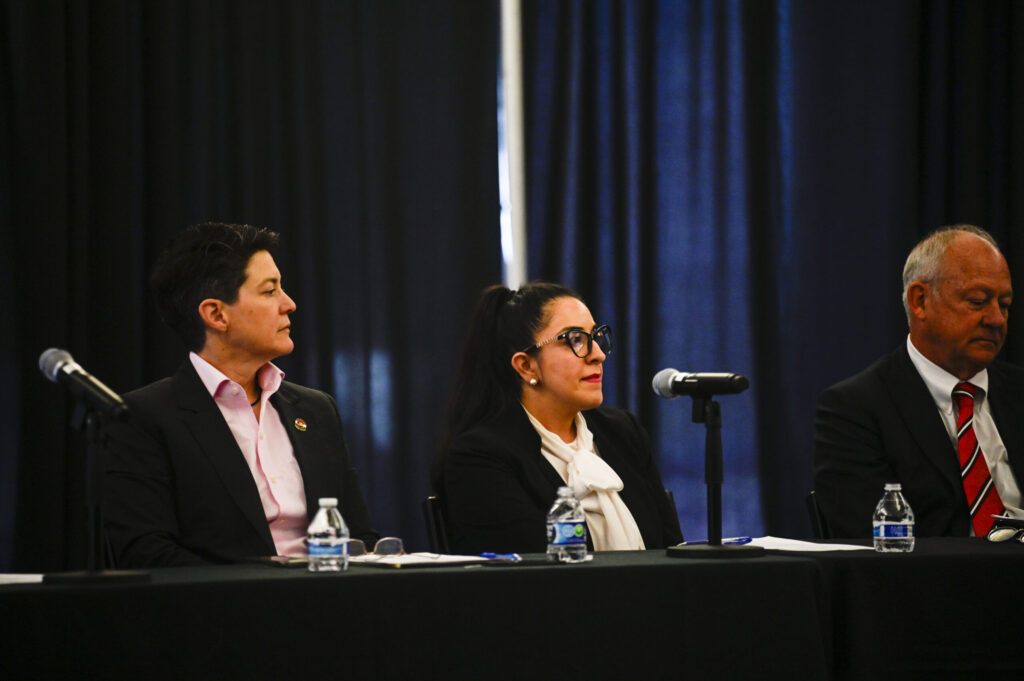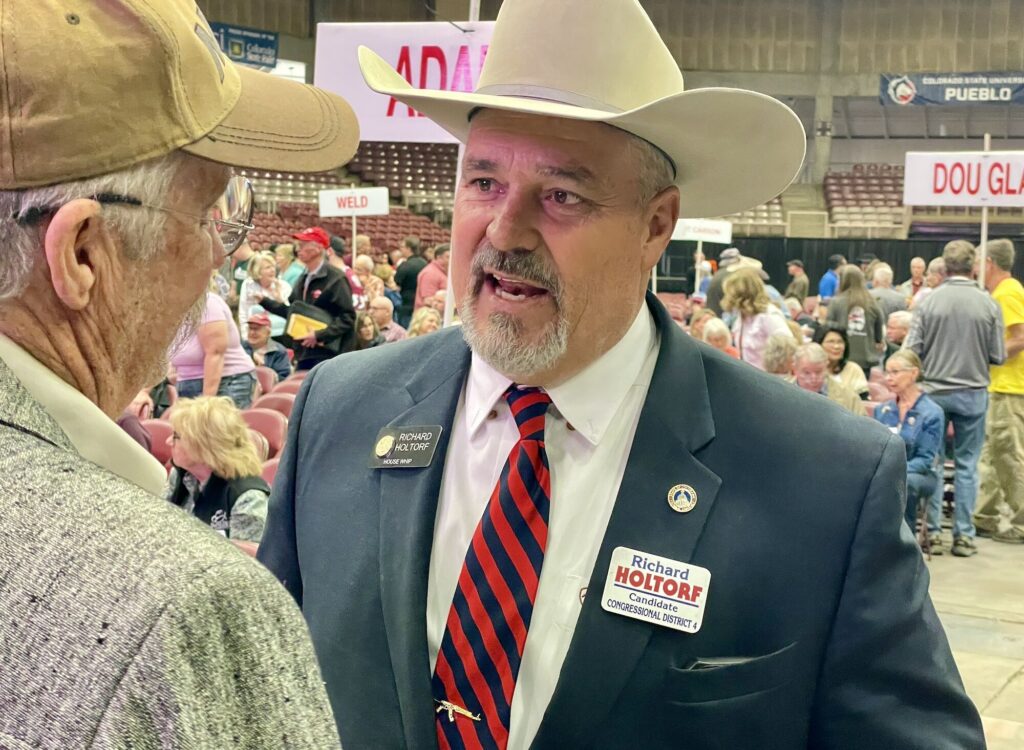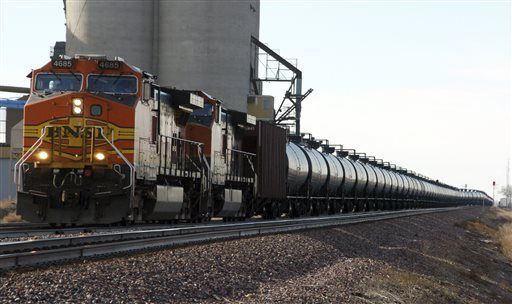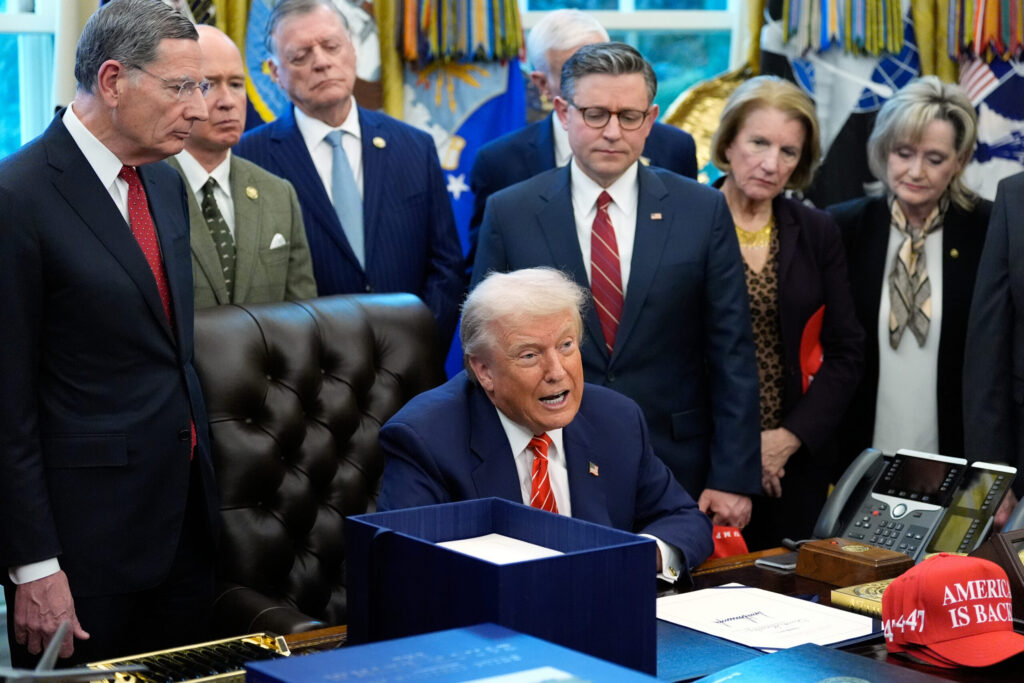Is Colorado open to embracing nuclear energy? A former anti-nuclear Democrat is asking colleagues to reconsider the energy source
A bill that would add nuclear power to the state’s list of “clean energy” resources won approval from the state House on Tuesday after gaining the support of Republicans and Democrats alike.
Similar efforts have failed in the past, and the passage of House Bill 1040 out of one chamber hints of a shift in how nuclear power is perceived at the Colorado state Capitol, where Democrats have pushed for solar and wind energy as their preferred route to curbing carbon emissions.
Indeed, some at the state Capitol appear to acknowledge that White House’s emphasis on oil and gas production and a realization that the preferred portfolio of “renewable” sources is insufficient to deliver the promise of a “carbon-free” society has, almost overnight, changed the equation for the conversation around nuclear energy.
The bill’s sponsor, in fact, is better known for his work on the environment.
“I’m a solar guy!” Rep. Alex Valdez, D-Denver, had said during the House Energy and Environment Committee on the bill on Feb. 13.
In fact, he added, he was “anti-nuclear” when he came to the state Capitol seven years ago.
On Monday, HB 1040 won a 43-18 bipartisan vote. It now heads to the state Senate.
In addition to Valdez, Assistant House Minority Leader Ty Winter, R-Trinidad, also sponsored the bill in the House. In the Senate, the sponsors are Sens. Dylan Roberts, D-Frisco, and Larry Liston, R-Colorado Springs.
Liston has been pushing for most of the bills promoting nuclear energy in the past several years.
A nuclear epiphany
So, how exactly did Valdez go from abhorrence to nuclear energy to sponsoring a bill to move Colorado in that direction?
The Democrat said his epiphany occurred after he joined a nuclear group through the National Conference of State Legislatures. Through another group, he also learned about France’s nuclear energy. The county is notably almost entirely powered by nuclear energy, and it sells energy to Germany, he said.
Valdez noted that his legislative agenda has largely been focused on approaching energy from a “climate change” perspective. With the Trump administration moving to dismantle Biden’s focus on climate and funding for such programs potentially drying up, the Democrat said, “What are we going to do to stay clean?”
France, he said, actually got to where Colorado wants to be — with complete “clean” energy — in 1985.
He noted that the federal government has already approved the technology for small modular reactors.
He also insisted it is safe, taking a page out of the argument by pro-nuclear advocates who have insisted that nuclear power is sustainable, reliable, and, once the infrastructure has been set up, cheap.
Winter added another argument — the bill “gaps” the urban-rural divide.
“My constituents want a chance to power Colorado again,” he said.
“These plants will land in my backyard,” he said, adding that means economic stability for one of the poorest counties in Colorado.
An ambitious goal — and only five more years to achieve it
As embraced by Gov. Jared Polis and the Democratic legislature, Colorado’s clean energy goals call for an 80% reduction in greenhouse gas emissions from coal or natural gas by 2030 and seeks to power all of the state’s energy from “renewable sources” by 2050.
But can it achieve this with its existing portfolio of wind, solar, and other smaller-generating clean energy sources?
Some utilities said the answer is “no” — and nuclear energy may help fill the gap.
Last week, the Colorado Springs Utilities Board of Directors approved a plan presented by its Utilities Policy Advisory Committee about the feasibility of nuclear power for the city. The committee will launch a more detailed review of adding small modular reactors in the next two years, including looking at possible locations on utility land and opening a new request for proposals to bring in a nuclear consultant.
The big question is how Polis views nuclear energy. The word “nuclear” doesn’t appear anywhere on the website of the Colorado Energy Office for “climate and energy.”
Since 2022, Republican lawmakers have tried unsuccessfully to include nuclear energy as an alternative source.
Colorado has no nuclear energy facilities — its last one, the St. Vrain Power Plant in Platteville, operated for only 13 years, from 1976 to 1989. It now operates as a natural gas electricity plant.
Colorado has uranium, which was mined in Central City from 1871 to 2009, when it was halted due to health and safety concerns.
According to a 2021 issue brief produced by the nonpartisan Legislative Council staff, the U.S. Department of Energy has researched and developed technological advancements to increase the use of nuclear energy, such as advanced small modular reactors. And since 2018, DOE has awarded funding to companies across the country to also begin researching and developing their own advanced small modular nuclear reactors.
A federal pivot to oil and gas — and nuclear energy
Then there’s the issue of federal emphasis, which means funding.
The Trump administration is pivoting the country’s focus to domestic production of oil and gas, seeking to “unleash” American energy. Notably, under a section called “terminating the Green New Deal” in an order, the White House wants to halt disbursements of funds for electric vehicle charging stations.
The president’s order also seeks to cut red tape for the development of nuclear energy. One white paper said “nuclear power enters 2025 as a key player in America’s energy security and green transition.”
But will Gov. Jared Polis get on board? The word “nuclear” doesn’t appear anywhere on the Colorado Energy Office website section on “climate and energy.”
But even before Trump’s ascendancy to the White House, there are hints that nuclear power is poised for some sort of revival in the U.S.
George Luebkeman of Oklo, an advanced nuclear technology company, said he had expected to work in the wind and solar sector after college. But that changed when he learned nuclear is among the cleanest and safest energy technologies available. Testifying during the House’s energy committee hearing, he said a review of 20 studies showed nuclear emitted three times less greenhouse gases than solar, and it is comparable with wind and hydropower. He said that modern reactors are not like the past, and there’s a growing need for “carbon free” power.
By classifying nuclear as “clean,” it shows that nuclear belongs in the conversation, he said.
Environmental activists: It’s not ‘clean’
Environmentalists and their allies showed up to challenge the legislative proposal.
Lucy Molina of Commerce City called the bill a perfect example of “environmental racism.”
This isn’t clean energy, it’s deadly energy, she added.
Commerce City Councilwoman Kristi Douglas said she’d heard years ago that nuclear would replace the Comanche Power Plant in Pueblo.
“There is fear and there will be an uprising,” she said. “Do not disguise this form of energy as clean. It’s not.”
“We can hit our targets without nuclear,” added Ean Thomas Tafoya of GreenLatinos.
Some forms of nuclear are not cost-effective, he said, citing a plant in Idaho that, he said, was canceled in 2023 for cost overruns and lack of subscribers. Small modular reactors don’t solve the nuclear waste problem, either, he said.
The bill got little opposition during the House debate last Thursday.
Rep. Meg Froelich, D-Englewood, said the bill is not about nuclear safety or wind or solar — or whether to give a thumbs up or down to nuclear power.
“This bill is about adding nuclear as a clean energy source and that’s downright Orwellian,” Froelich said.
To classify nuclear as “clean” is to ignore waste, much of which has been stored on tribal lands, she added.
All eyes on the Senate
Liston told Colorado Politics that he feels gratified that his persistence has paid off.
“I’m not doing this for me, I don’t have a vested interest in it. This is for the people of Colorado, for five, 10 or 50 years from now,” he said.
Liston said part of the reason nuclear energy has been so expensive is the anti-nuclear atmosphere permeating the last 30 years. But if the regulatory environment changes, he said, the costs would come down dramatically.
Something must replace oil, gas, and coal — and nuclear could play that role, he said.
As for where the governor stands, Liston said he believes Polis will sign HB 1040.
“I give him full credit that he understands the necessity of it,” Liston said.
Liston has also sponsored a second bill to promote workforce development opportunities in the state’s nuclear sector.
Senate Bill 120, which has Sen. Janice Marchman, D-Berthoud, as a cosponsor, would create the Colorado nuclear workforce development and education program and a grant program to develop nuclear engineering degree, certificate programs or course offerings. The bill shows a cost of $500,000, but that’s expected to be funded through gifts, grants, and donations, a key consideration in a year when the state has no money for new programs.
Liston said he believes organizations like Xcel Energy, Black Hills Energy, San Isabel Electric, and Colorado Springs Utilities are willing to consider making those donations.
SB 120 has been assigned to the Senate Education Committee and is scheduled for a hearing on Wednesday.
The Gazette’s Brennan Kauffman contributed to this report.











